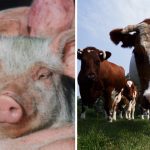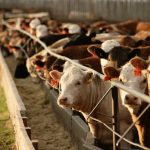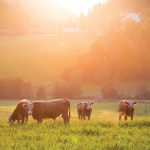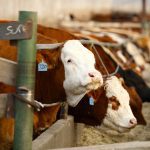Chicago Mercantile Exchange (CME) lean hog futures turned higher on Thursday on a spate of bargain-buying, after the most-active August contract LHQ24 set a new low during the session, traders said.



Is a cloned cow any different from a conventionally conceived cow when it comes to meat? Canadian officials suggest not






Long-awaited feed regulation update offers more flexibility, risk-based approach, focus on food safety

